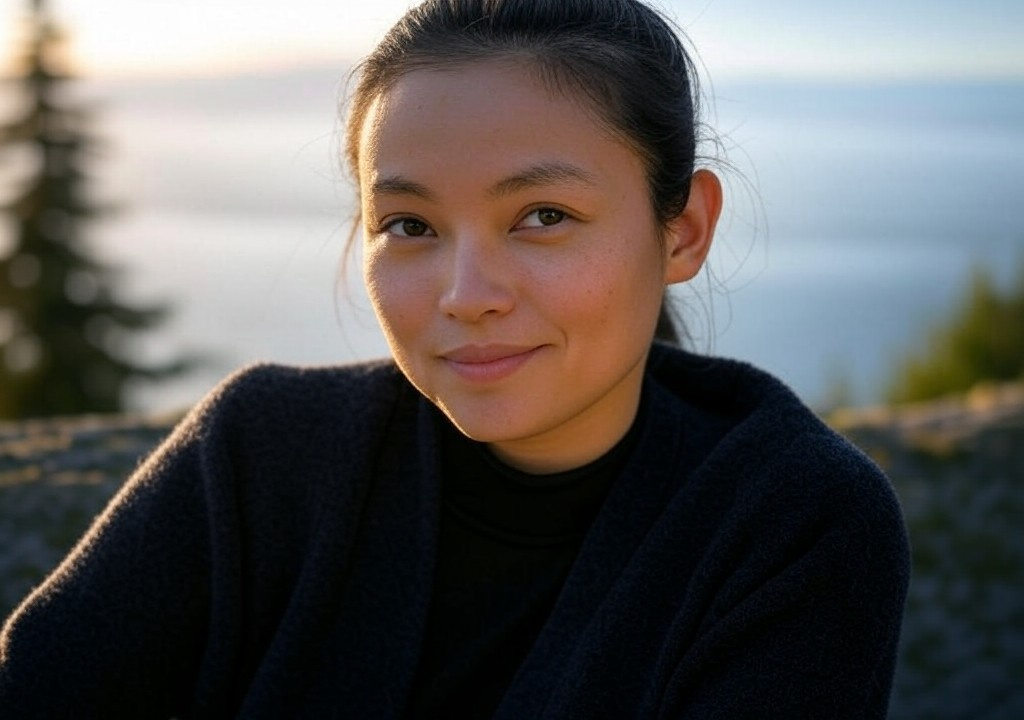It started over cha chaan teng milk tea. You know, the kind of tea that’s somehow bitter and sweet, comforting and chaotic all at once—much like trying to figure out who you are in your 20s. I was sitting at the family café in Kitsilano, glued to a corner booth that had been my refuge through teenage heartbreaks, university all-nighters, and awkward family dinners where my mom interrogated me about “what exactly” I planned to do with this Creative Writing degree. (“Willow, does this mean you’ll be, what, poor but poetic?” Thanks, Mom.)
That day, though, was different. A customer—let’s call her Auntie Shirley—stopped by for her ritual iced lemon tea and waffles. Auntie Shirley was the self-appointed mayor of the café. She excelled at giving unsolicited relationship advice to strangers, pulling people into intense games of mahjong, and speaking three languages at once while winking at you in complicity. Normally, I avoided her theatrics, but this time, she sidled up to me and said something that not only caught me off guard—it split me wide open.
“I see you, you know,” she said, tossing a packet of sugar into her tea. “The girl who’s half daydream, half fight, trying to make sense of both.”
At first, I froze. Was this a compliment or a Zen koan? But then it hit me: She nailed it. That one sentence captured years of being torn between two cultures, two expectations, maybe even two selves. It's as if she had handpicked a song from my personal playlist—the one no one else was cool enough to hear. For the first time, someone looked past what I presented on the outside and named something I had felt but never dared to articulate. I felt seen.
The Struggle for the Spotlight: Balancing Two Identities
Growing up as the child of immigrant parents, I perfected the art of code-switching before I even knew there was a word for it. At school, I juggled polite small talk about yoga moms and ski trips to Whistler; at home, my vocabulary switched to Cantonese, and the stakes were much higher: What grades did I get? Was this boy “serious”? Did I eat enough rice today?
I’d giggle over my crushes when hanging out with my Canadian friends but instinctively tone it down at home, where priorities leaned toward education and tradition. Dating, though not forbidden, felt like a topic we’d skim over in hushed tones, as if even discussing it might summon a lineup of unworthy suitors to the door.
Between these two parallel universes, I rarely paused to think about who I was—not the dutiful daughter or the perfect student, just me. I wasn’t yet able to reconcile the dreamer who wrote poetry on the beach with the bossy realist who drafted PowerPoint presentations for family reunions. How could anyone else, when I could barely understand it myself?
The Turning Point: Feeling Seen, But on My Terms
Here’s the thing about feeling truly noticed: it doesn’t come from someone just observing your surface-level quirks (“Oh, you like indie music? Cool.”) or complimenting an IG thirst trap (though those can validate an outfit decision). It’s when someone reflects back a truth so unvarnished you can’t deny it. That’s what Auntie Shirley did for me in her offhand way—she caught a fleeting glimpse of something I didn’t even fully know about myself and had the guts to call it out.
In relationships, too, there’s an amazing freedom in feeling seen. It’s the difference between a date saying, “Oh, you like bike rides? Me too,” and someone noticing how you pause to photograph the way sunlight hits the seawall, then teasing you about your “artsy eye.” It’s the way they pick up on how your laugh changes after the third drink or how you brush your hair behind your ear when you're overthinking. Recognition lies in the small, layered details.
That moment with Auntie Shirley gave me permission to explore and own the parts of myself I had kept compartmentalized. It wasn’t easy, but it changed how I showed up in relationships—romantic and otherwise. Put simply: When you feel like someone understands you, you’re less about performing and more about being.
Quick Tips for Feeling Seen in Your Own Relationships
Let’s be honest: No one’s going to barge into your life declaring, “Lo! I have unlocked the truth of you!” (Unless you hang out with Auntie Shirley, in which case all bets are off.) But creating space for genuine connection can help you and others show up authentically. Here’s what I’ve learned:
-
Find Your Cheung Fun People
In Cantonese, we call easygoing people “cheung fun,” like the silky, steamed rice noodle rolls that slide effortlessly off your plate. These are the folks who put you at ease and don’t expect you to be polished all the time. Pay attention to the people you relax around naturally—they’re likely the ones who already see you. -
Step Into Vulnerability
While I don’t recommend starting a first date with “What are the deepest contradictions in your personality?” (serious serial killer energy), being willing to peel back a layer or share a lesser-known detail about yourself can create an opening for intimacy. People who encourage curiosity instead of judgment are keepers. -
Celebrate Your In-Between-ness
Whether you’re navigating an actual cultural divide, or just feel like you’ve got contrasting personas for work, dating, and friends, own the complexity! Instead of trying to simplify who you are to fit someone else’s framework, lean into the ways your quirks add dimension to your story. It can be as simple as admitting, “I think I’m a mix of zen beach bum and spreadsheet nerd.” If they get it, they’re worth keeping around. -
Ask Others What They See
Sometimes, the best way to feel “seen” is to bravely invite the reflection. Ask a close friend or partner: “What’s something you notice about me that I may not notice about myself?” It sounds cheesy, but you’d be surprised—often, it’s something you didn’t realize was such a core part of your personality.
The Sweet Spot of Being Known
After that day, Auntie Shirley became a kind of guardian spirit for me. Whenever I second-guessed myself—as a writer, a partner, or just a person trying to harmonize contradictory pieces of my identity—I’d hear her voice reminding me that it’s okay to be both “daydream” and “fight.” You don’t have to choose between the two halves; you can learn to make them dance.
If you’ve ever felt invisible in love or life, know this: The right people—the ones who deserve your time—won’t just look at what you do or how you act. They’ll take the time to marvel at that thing that makes you you. And that moment, when someone gets it, feels better than any Instagram like or dating app match. It feels like home.




















